An infectious disease expert explains.
ArticleBody:This article was originally featured on The Conversation. The highly contagious norovirus – popularly known as “stomach flu” or the “winter vomiting bug” – is now surging through the U.S.. The number of outbreaks is up significantly over previous years, possibly due in part to a new strain of the virus. Outbreaks can occur after direct contact with someone who is infected. Food and household surfaces can also become contaminated.
How can people protect themselves from the norovirus? William Schaffner: The most important thing is good hand hygiene. Washing with soap and water works the best. Those hand hygiene gels and wipes – the hand sanitizers – that people tend to use aren’t as effective against norovirus, so just wash frequently with good old soap and water. And then, of course, avoid people who are sick. Also, remember that the virus can survive on environmental surfaces, like counters, doorknobs and tables.
United States Latest News, United States Headlines
Similar News:You can also read news stories similar to this one that we have collected from other news sources.
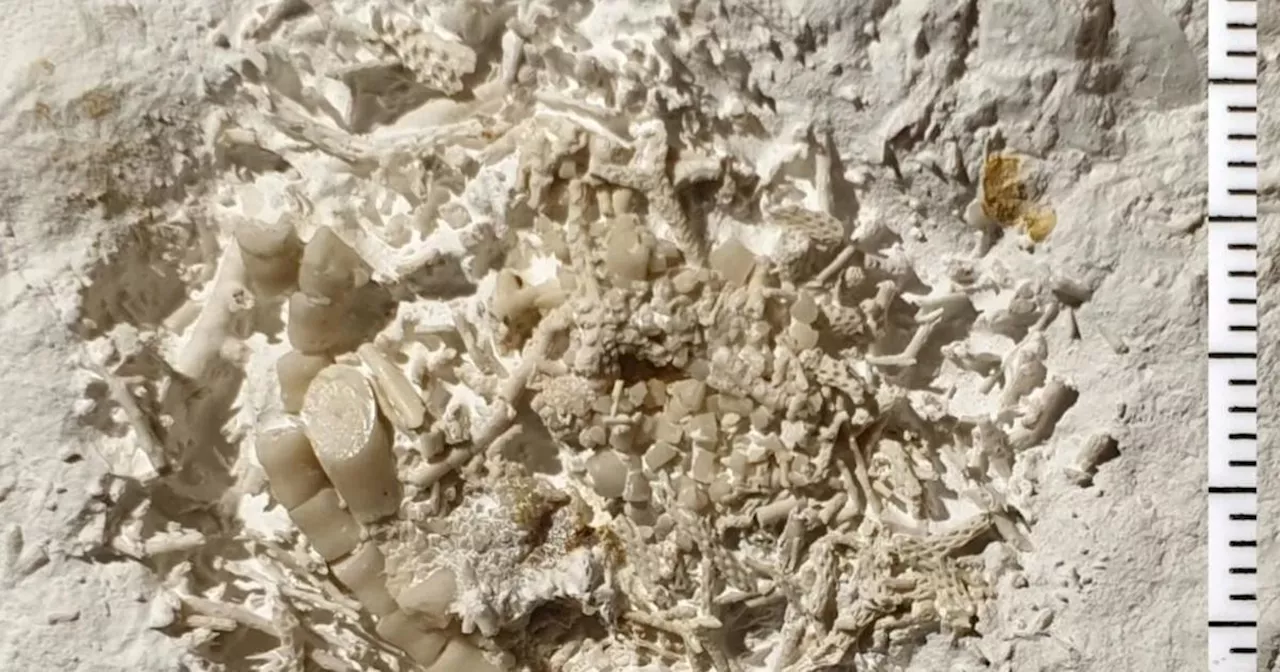 66-million-year-old vomit discovered by amateur fossil hunter in Denmark: 'Truly an unusual find'A paleontologist hailed the discovery as 'truly an unusual find,' adding it helped explain the relationships in the prehistoric food chain.
66-million-year-old vomit discovered by amateur fossil hunter in Denmark: 'Truly an unusual find'A paleontologist hailed the discovery as 'truly an unusual find,' adding it helped explain the relationships in the prehistoric food chain.
Read more »
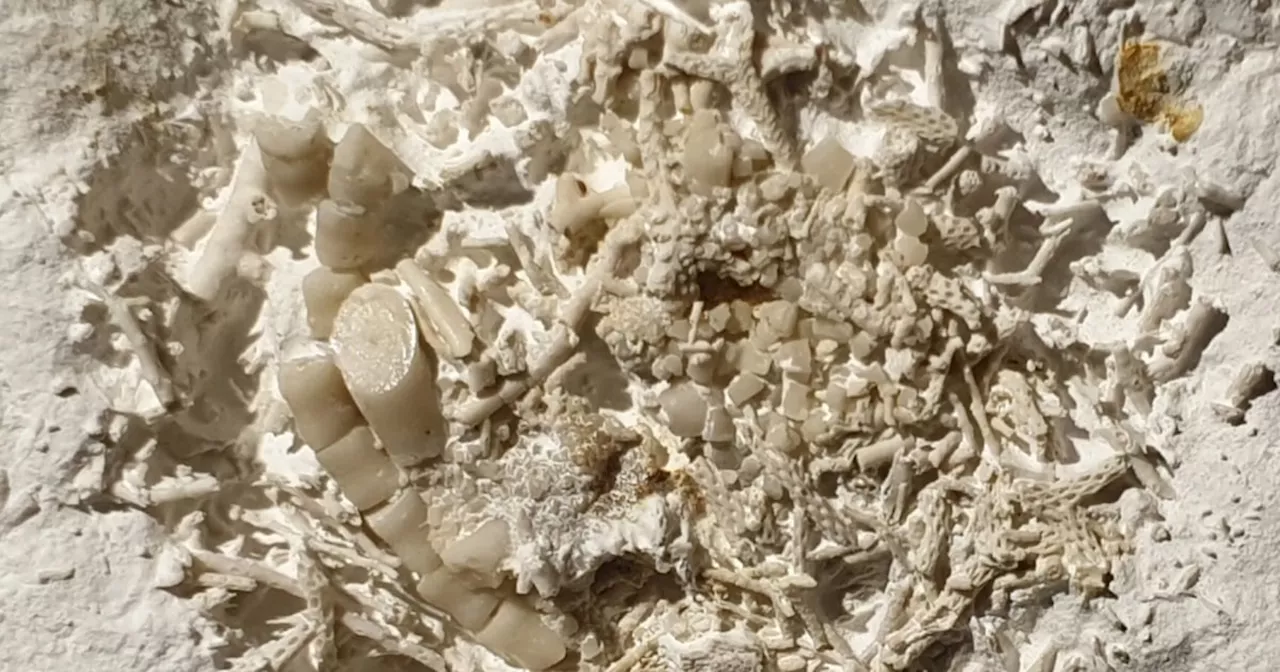 66 Million-Year-Old Fossil Vomit Unearthed in DenmarkA 66-million-year-old vomit fossil, named Danekræ DK-1295, has been discovered in Denmark. The fossil, found at Stevns Klint, consists of sea lily fragments regurgitated by a Cretaceous-era predator. Scientists believe this rare find offers valuable insights into ancient ecosystems and predator diets.
66 Million-Year-Old Fossil Vomit Unearthed in DenmarkA 66-million-year-old vomit fossil, named Danekræ DK-1295, has been discovered in Denmark. The fossil, found at Stevns Klint, consists of sea lily fragments regurgitated by a Cretaceous-era predator. Scientists believe this rare find offers valuable insights into ancient ecosystems and predator diets.
Read more »
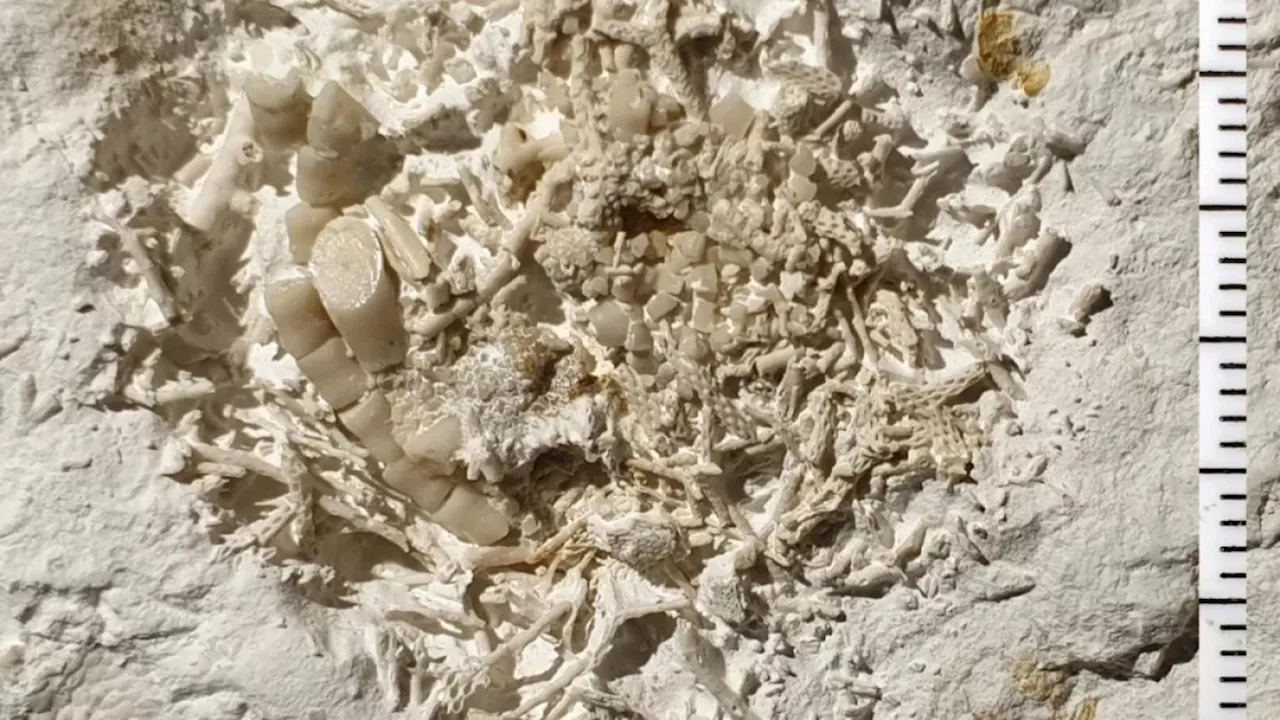 66-million-year-old vomit fossil discovered in DenmarkThe rare find, which was discovered at Stevns Klint, a coastal region off the Baltic Sea, reveals ancient predator-prey dynamics.
66-million-year-old vomit fossil discovered in DenmarkThe rare find, which was discovered at Stevns Klint, a coastal region off the Baltic Sea, reveals ancient predator-prey dynamics.
Read more »
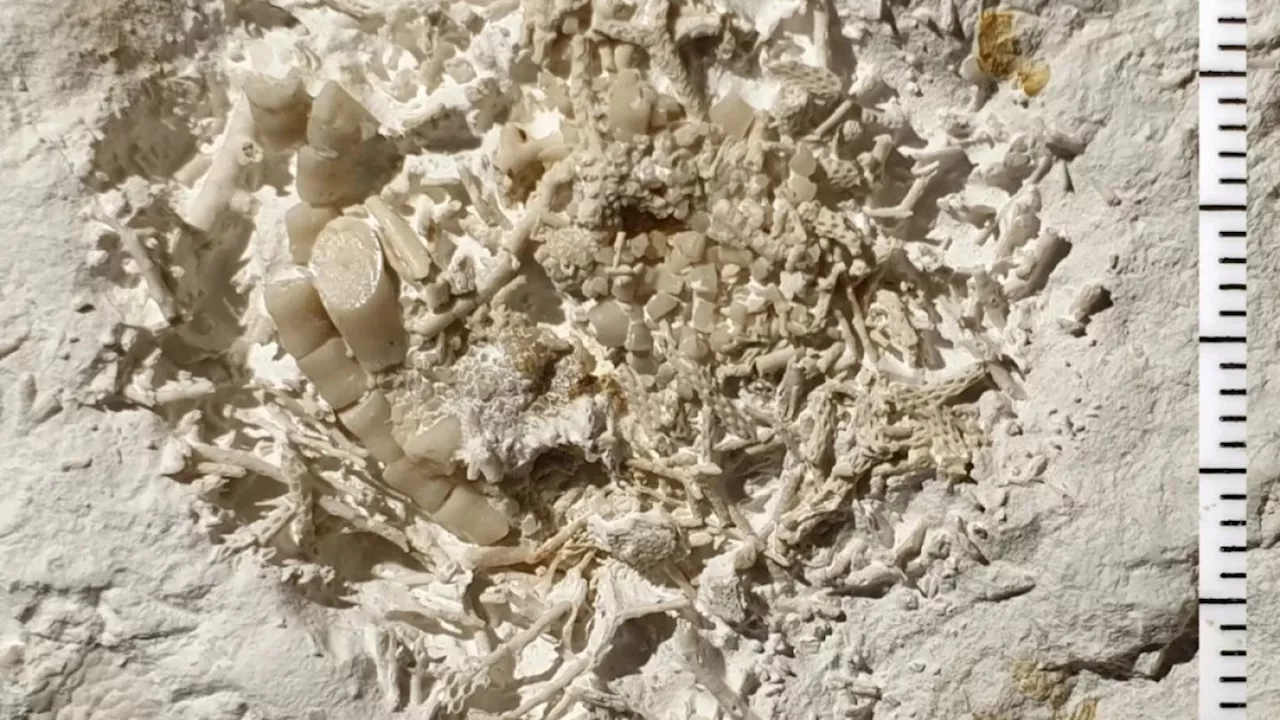 66-Million-Year-Old Fossilized Vomit Unearthed in DenmarkA rare 66-million-year-old fossilized vomit, containing remains of sea lilies, has been discovered in Denmark, providing valuable insights into ancient predator-prey dynamics.
66-Million-Year-Old Fossilized Vomit Unearthed in DenmarkA rare 66-million-year-old fossilized vomit, containing remains of sea lilies, has been discovered in Denmark, providing valuable insights into ancient predator-prey dynamics.
Read more »
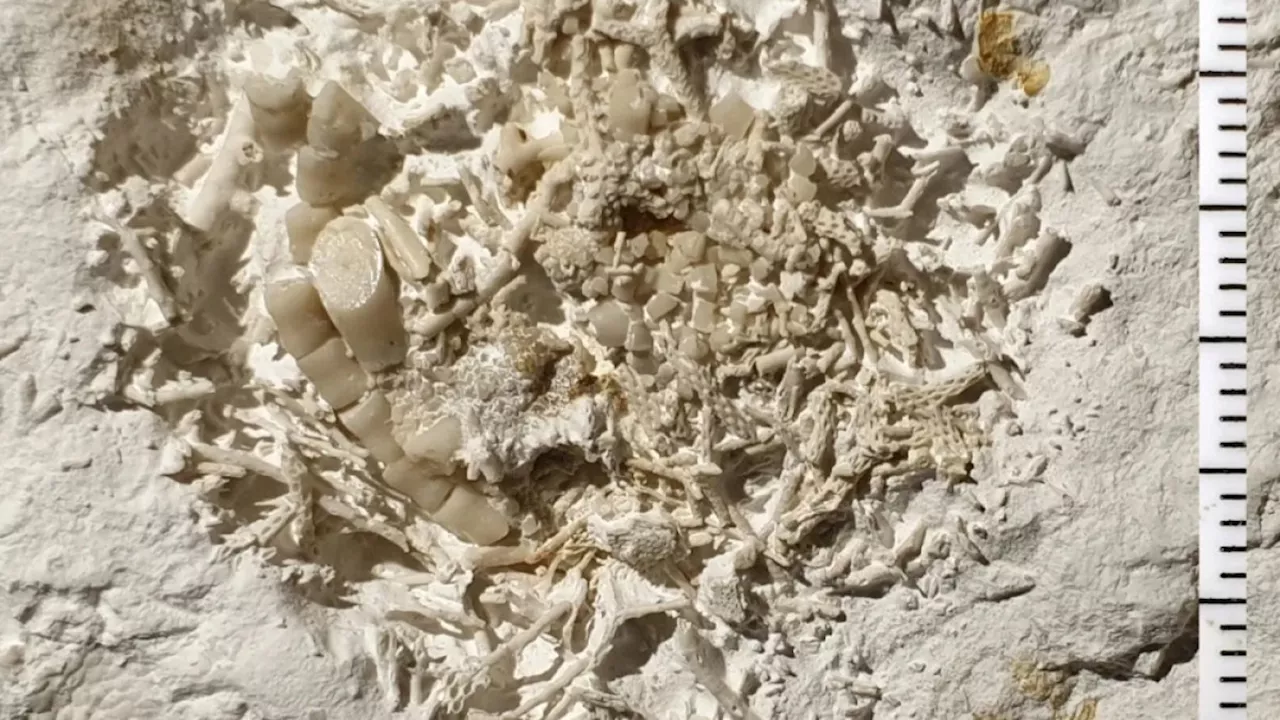 66-Million-Year-Old Vomit Fossil Unearthed in DenmarkA Danish fossil hunter discovered a 66-million-year-old vomit fossil containing remains of at least two sea lily species. This rare find, named Danekræ DK-1295, provides valuable insights into the diet and food chains of Cretaceous-era predators.
66-Million-Year-Old Vomit Fossil Unearthed in DenmarkA Danish fossil hunter discovered a 66-million-year-old vomit fossil containing remains of at least two sea lily species. This rare find, named Danekræ DK-1295, provides valuable insights into the diet and food chains of Cretaceous-era predators.
Read more »
 Extreme Vomit Phobia Drives British Mother to Suicidal ThoughtsAlex Sim-Wise, a 43-year-old British mother, reveals her crippling emetophobia has left her suicidal and housebound. The phobia, which began at age eight, has progressively taken away her enjoyment of activities like roller coasters, travel, and socializing. Now, she struggles to leave her home, constantly consumed by her fear of vomit. Sim-Wise hopes to enter an inpatient facility for treatment and highlights the profound impact her phobia has had on her life.
Extreme Vomit Phobia Drives British Mother to Suicidal ThoughtsAlex Sim-Wise, a 43-year-old British mother, reveals her crippling emetophobia has left her suicidal and housebound. The phobia, which began at age eight, has progressively taken away her enjoyment of activities like roller coasters, travel, and socializing. Now, she struggles to leave her home, constantly consumed by her fear of vomit. Sim-Wise hopes to enter an inpatient facility for treatment and highlights the profound impact her phobia has had on her life.
Read more »
